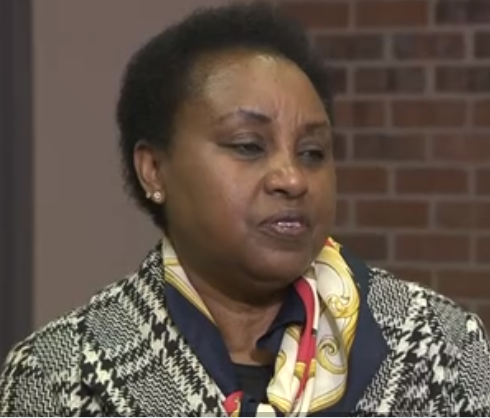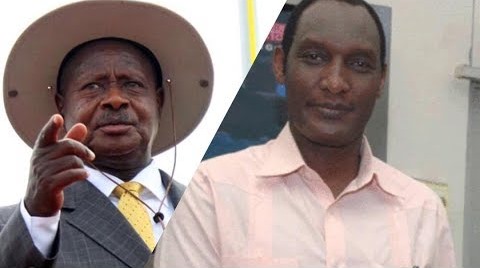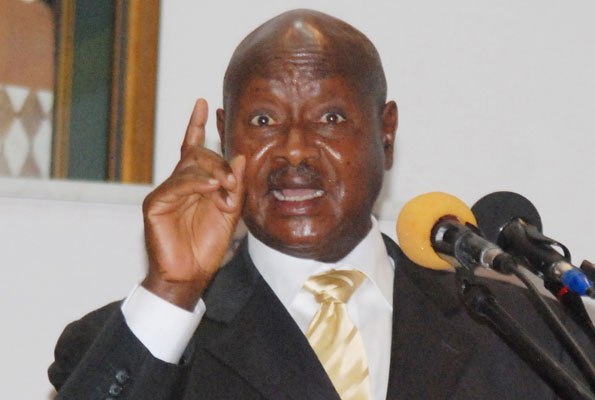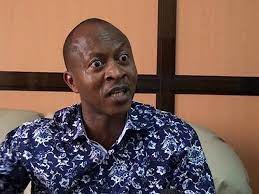Regional
What can Ugandans, region expect from Museveni’s new term?
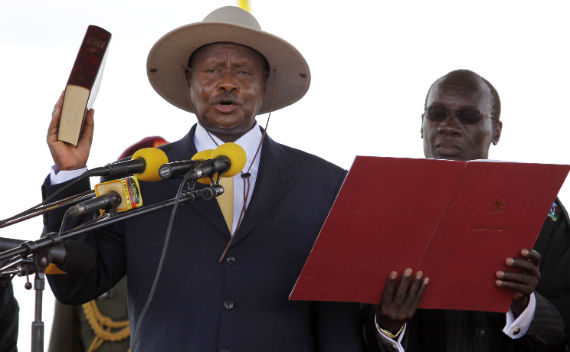
In his inauguration speech, Museveni went on a tirade against his predecessors, accusing them of running down the economy, and so on. But Museveni's reign has been worse, with corruption, among others, increasingly becoming a norm. Museveni and his family are linked to some of the biggest corruption scandals in the country.
President Yoweri
Museveni of Uganda was sworn in for the sixth term on Wednesday, May 12, at
Kololo ceremonial grounds in Kampala. The homes of the main opposition figures,
Robert Kyagulanyi, alias Bobi Wine, and Kizza Besigye were reportedly under
siege by heavily armed security men. Kampala city also remained under heavy
security deployment. Museveni will end
the current term in five years when he is 81 years old.
At each swearing
in ceremony as President of Uganda, Museveni has always reminded Ugandans how
he went to the bush to fight all sorts of bad governance practices by his
predecessors, chief among them being corruption and nepotism.
However, despite
his sugar-coated speeches - which he has always delivered in the same
monologue tone, his deeds speak otherwise. He preaches water and drinks
wine.
From the time it
was revealed that Museveni was going to be on the ballot for the elections in
2021, many Ugandans and political analysts, with vivid examples, made it clear
that Museveni won't be able to do what he failed to do in the last 35 years.
Interestingly,
many of these analysts agree on the belief that if at all any change is to take
place in Uganda, it will be one towards a downward trend where the Ugandan
system has been heading to over the years.
In his
inauguration speech, Museveni once again went on a tirade against his
predecessors, accusing them of running down the economy, then went on to accuse
them of having focused on the wrong vices such as identity, religion and
sectarianism. He even dared to call some of them illiterate - specifically in
reference to Idi Amin.
Interestingly,
Museveni announced that his government has managed to inculcate what he
referred to as the four principles of NRM: patriotism, pan africanism as a
necessity of the prosperity of the society, socio economic transformation and
the development of human resource through education and human health. He
finally dared to say that Ugandans had not known democracy until his
reign!
From the above
declarations, only those who do not know Museveni can be fooled. For many
Ugandans, and his regional neighbours, his speech was a déjà vu - same promises
that he promises on his campaign trails that end up remaining on paper.
Corruption
Corruption is increasingly becoming a norm, with Museveni himself and his close family members linked to some of the biggest corruption scandals in the country. The recent Air Uganda scandal reveals that the President, through his brother Caleb Akandwanaho, alias Salim Saleh, who is the de facto Vice President and Prime Minister combined, has his hand deep in the fracas that threatens the existence of the airline that was revived barely two years ago. The airline is being revived at a huge cost. It was previously liquidated, after it was stripped naked by the same Salim Saleh.
Museveni’s
biggest record in corruption is being the only sitting President on earth with
a corruption case in a foreign country. In a trial before US federal judge
Loretta A. Preska, in 2018, Museveni and his foreign Minister Sam Kuteesa were
mentioned for receiving a bribe of US$ 500,000 each, in exchange for business
advantages from China Energy Company Limited (CEFC China).
Regional analysts say that the case provides “only a tiny example” of how far mired in the cesspit of corruption the upper echelon of the Museveni government, including him, are. According to the damned indictment, Museveni (whose big, bald and glowering picture was shown on the courtroom screen with the caption in capital letters: “EXHIBIT 1510”) received a bribe amounting to US$500,000” (greatklakeswatch)
Nepotism
Talking of nepotism, Museveni’s record is way bigger than that of all his predecessors put together. Museveni has on different occasions said that while ex-President Idi Amin Dada ensured people in West Nile were in many positions of government and the military, Milton Obote’s prejudice favoured the people from the Acholi and Lango sub-regions. He then goes on to hoodwink Ugandans and indeed the world that he is different, when actually his track record makes him worse.
During an
interview in 2015 with Kenyan journalist, Jeff Koinange, Museveni couldn’t have
made it any clearer. He said: “I am working for myself, I am not working for
other people. I am working for my grandchildren, my children.”
In January 2017,
Museveni also declared that he is not a servant or an employee of anybody but a
person who fights for himself and his beliefs. “I am not an employee. I hear
some people saying that I am their servant; I am not a servant of
anybody," he said.
"I am not
your servant. I am just a freedom fighter; I am fighting for myself, for my
belief; that’s how I come in. If anybody thinks you gave me a job, he is
deceiving himself." Starting with his nucleus family, he appointed his
wife, Janet Museveni, as the powerful Minister of Education and his son, the
meteorically promoted Lt Gen Muhoozi Kainerugaba, as head of the overbearing
Special Force Group.
It is highly
expected that in 2026, Museveni is likely to anoint Muhoozi as his successor
because he found that no other Ugandans have the vision for the country except
his family.
On the other
hand, he has anointed a semi-god in his younger brother, Gen Caleb Akandwanaho,
aka Salim Saleh. Despite having no formal leadership position, there is no
lucrative government contract that is signed without going through his hands.
No appointment in government is done without Saleh’s consent and he has lately
assumed the name “Chief Listener’. He will summon any Minister and order him or
her to give so and so a tender, regardless of their competence.
Nepotism has
become Museveni’s mode of governance. An incident last week reveals how two
children of Foreign Affairs Minister Sam Kutesa – a daughter and a son – were
appointed as Ugandan diplomats representing different countries, and they will
work under close supervision of their father.
Already, another
daughter – Shartsi Musherure Kutesa – was controversially ‘anointed’ as MP for
Mawogola North, replacing her father who had represented the area for
decades. Sedo Museveni, another brother
of the President who had contested the same seat cried foul that his votes had
been rigged. The Kutesa family is not any other Ugandan family. It’s very close
to Museveni’s through marriage. Museveni’s son, Muhoozi, is married to
Charlotte Kutesa, who has herself benefitted from her father-in-law’s
largesse.
Last year, as
Covid-19 wreaked havoc, a report from the Ugandan ministry of finance linked
Charlotte Kutesa- Museveni’s daughter in law and her sister Ishta Muganga
Kutesa, to a fraudulent multi-billion deal to supply oxygen cylinders to
hospitals for use by Covid-19 patients.
On May 6, 2020,
the two sisters, through their company Silverbacks Pharmacy Ltd signed a Shs6.4bn contract to
supply and install oxygen plants at Mulago National Referral and Entebbe
Hospital. The contract also required the firm to supply 450
cylinders, regulators, humidifier bottles and cannulas.
Consequently, the
Shs6.4bn invoice was paid by June 30. Yet the Kutesas had neither made
deliveries nor installations by September 2020 when the monitoring teams did
their field visits at Mulago and Entebbe. This nepotism deal within Museveni’s
family may have led to deaths of Ugandans which the two sisters will never account for.
In the NRM and
Museveni, Ugandans had hoped to finally get a government that was going to be
people-centered and address all issues of poverty, security and lack of
inclusivity that they have faced for quite a long time, since the country’s
independence. “The Museveni of today cannot recognize the Museveni of
1986 because they speak totally different languages”, a regional analyst told
this website.
Regional issues
One of Museveni’s dreams of staying in power for long was to become the first President of the East African Federation. His relationship with the neighbours where he does not even subscribe to the East African integration principle that advocates for free movement of people and goods defeats his dream. Ugandans were making millions of dollars by exporting goods to Rwanda, before Museveni decided to support terror groups against the government of Rwanda. The Ugandan businesses are now counting heavy losses after losing the Rwandan market. Museveni does not care since his family has enough wealth.
The terror groups
like RNC of Kayumba Nyamwasa and FDLR made up of remnants of the former Rwandan
army responsible for the 1994 genocide against the Tutsi are now working with
Uganda facilitated by its Chieftaincy of Military intelligence (CMI) in their
plot against the government and people of Rwanda. Rwandans who travel to Uganda
are branded spies and arrested, tortured and sometimes even killed. The spirit
of regional integration has been lost.
The question one
can ask probably is, will Museveni change his attitude towards Rwanda in this
new term? The writing on the wall does not display any promising bright
picture. For example, despite the cold bilateral relations, Rwanda acted in
good neighbourliness and in diplomatic spirit by sending the State Minister in
Charge of Regional Cooperation, Prof. Nshuti Manasseh, who represented
President Kagame during Museveni’s swearing in ceremony.
However, at the
backdrop of supporting Rwandan terror groups, a CMI mouthpiece known as
pearltimes.co.ug, did not see it worth appreciating that President Kagame made
a positive step to affirm good neighbourliness and wished the Ugandan President
well. In their mean article titled "This man Kagame!” they fail to realise
the bigger picture of Rwanda’s gesture and simply complain that Rwanda sent a
junior Minister.
Since Museveni
came to power in 1986, his time to think for the benefit of Ugandans and the
region was short lived. The biggest time of his rule is for his personal and
family benefits, as he said it himself.
So, for those who
expect Museveni to make a positive impact for Uganda and the region in his
supposedly last term, better be assured that there is nothing new. It will be the same old song, sang by the
same family choir, led by the same old man.


